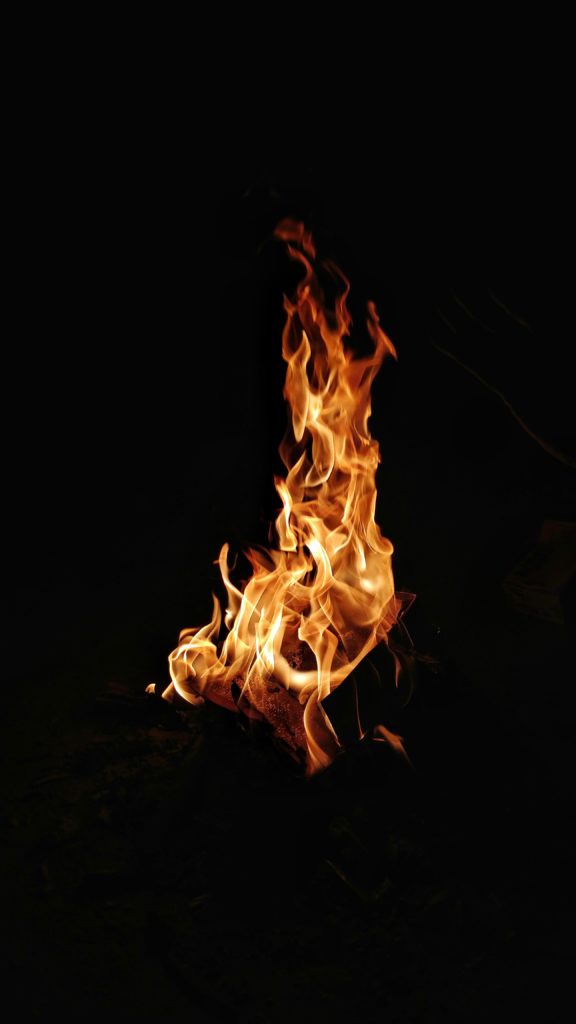“Rising From the Ashes”©

We’re surrounded by flame everywhere, everyday. We take fire for granted, barely noticing in the moment the amazing tools and conveniences provided for us with the turn of a knob, the switch of a button. We bake a cake, grill burgers, heat our homes, toast marshmallows around a campfire. From the beginning of time, man’s ability and ingenuity to create and harness fire has marked our path of evolution. And as long as that flame can be contained, controlled, all remains well and productive.
But when it breaks loose, the potential for catastrophic loss of life and property is boundless and indescribable. In the aftermath, when the flames have been contained and all that’s left is a smoldering heap of ashes, we’re left with the detritus of tattered emotions and things, and too often no idea how this happened, what to do, how to cope, how to pick up the pieces and learn to live with the harsh reality of devastation. Residents of Villebois in Wilsonville recently suffered through just such a night and now face that long, tough road of recovery.
Learning details about this recent, tragic night in Villebois summoned painful images of my own and despite the decade-long memories, forced me to relive a similar night I’ve never forgotten. The orange sky. The acrid taste of smoke in my mouth. The untitled fear I can still vividly recall today that I experienced as a six-year old, hiding in my bed, knowing my parents, along with everyone else in our tiny town, had rushed down at the river, three blocks away, to join a bucket brigade passing water up the hill from 150 feet below. All through the night, they desperately assisted our small volunteer fire department as a flickering monster devoured the famous, immense, wood-framed Bluff House Hotel that had stood on that ledge overlooking the valley for nearly a century.
I can still recall the whistle of the winds howling that night, threatening to blow the fire towards the west and engulf our town of eleven hundred souls. Somehow, in a magical moment during which the earth seemed to take a breath and then reverse itself, the winds shifted and began to blow to the east, pushing the structure over the bluff where it collapsed in a huge shudder into the Delaware River. A few years later, my father bought that property and built our home. To this day, remnants from the burnt-out landmark can still be found, protruding from the soil, just as the legend of the Bluff House fire remains embedded in my own personal history, indelibly seared.
Today, the victims as well as their family members, friends, neighbors, townspeople, and even the professionals who rushed in to help are facing, in varying degrees, a hard road ahead paved with a variety of emotions ranging from utter despair to unnamed rage. Along with the cycle of survival, recovery, acceptance and renewal, there will probably be, from time to time for those not directly impacted, a sense of helplessness in the face of someone else’s devastation. What to do, how to help, what to say, where to begin, to rebuild, to heal?
Villebois was initially and thoughtfully created as three close-knit neighborhoods joined like the spokes of a wheel to a centerpiece plaza with the specific intent to create a sense of close-knit camaraderie linked by common ground. On the night of the fire, it was this sense of community, of shared space, that no doubt accounted for the remarkable and deeply touching sense of connectivity that brought everyone to the scene from the moment the disaster was sighted, rushing in with open arms to help in anyway they could.
There have been many instances in our history when disasters have befallen a specific neighborhood, and those, just outside the marked circle, remained back, arms folded, with eyes wide shut and voices silent, and watched tragedy happen to “others.” A few horrific ones come to mind: Nazi Germany, Serbia/Bosnia, and Rwanda. Moments that speak to the worst of that which we are capable. But then there are times such as this recent, dark night in Wilsonville, when the very best of who we are takes center stage and staggers the heart.
Perhaps it will help to remember that victims of any tragedy, no matter how little or much is actually lost, are often propelled by a blind need to blame someone, anyone, anything, for the pain, the loss, the senseless destruction of it all. The cycle of grieving that begins in disbelieve and denial stretches out like an endless, empty path through an unknown wilderness that only those who have lost can travel. And as much as loved ones and bystanders want to make it better, what happened can’t be undone.
It takes time. And we never really get over tragedy and loss. We just learn to get on with it. The city can’t fix it. The fire department or police can’t fix it. All we can do is acknowledge that it happened, learn from whatever lessons appear, and go forward.
In the end, it will always be the simple knowledge that one is not alone, that there are close neighbors and townspeople standing ready to support and help and encourage anyone who is grieving as they wander through this unfamiliar territory, that soothes the grieving heart. Knowing that we are standing together, as a community, a neighborhood, a town, on the common ground of concern and compassion, can not only make the journey possible, but transform it into the miracle of healing.









